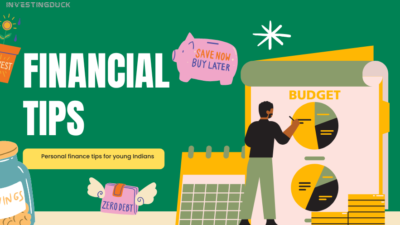If you have bad credit and dream of owning a home, home loan you might feel like getting approved for a mortgage is out of reach. However, there are still ways to qualify for a home loan, even if your credit score isn’t perfect. This guide will walk you through the steps, tips, and options available for securing a home loan despite bad credit.
What is Considered Bad Credit?
Credit scores are one of the most important factors lenders use to determine your ability to repay a loan. Here’s a breakdown of credit score ranges:
| Credit Score Range | Credit Rating | Loan Eligibility |
|---|---|---|
| 300 – 579 | Poor | Difficult to qualify, high interest |
| 580 – 669 | Fair | Possible, but higher rates |
| 670 – 739 | Good | Easier approval, better rates |
| 740 and above | Excellent | Best rates and terms |
Bad Credit typically refers to a score below 640, though the exact threshold varies by lender and loan type.
How Bad Credit Affects Your Ability to Get a Home Loan
Having a low credit score can make it more difficult to qualify for a mortgage. Lenders see you as a higher risk, and as a result, they may:
- Offer higher interest rates: Your loan will cost more over time.
- Require a larger down payment: A bigger down payment reduces the lender’s risk.
- Limit the loan amount: You might qualify for a smaller loan than you would with better credit.
But don’t lose hope! It’s still possible to secure a mortgage with bad credit by following the right steps and exploring the right options.
Steps to Qualify for a Home Loan with Bad Credit
1. Check Your Credit Report
Before applying for a loan, get a copy of your credit report. Make sure there are no errors or fraudulent activities that might be affecting your score. If you find any mistakes, dispute them with the credit bureau.
2. Save for a Larger Down Payment
Lenders will be more likely to approve you if you can offer a larger down payment, as it lowers their risk. Typically, you might need at least 10-20% down, depending on the lender and loan type.
3. Consider a Co-Signer
If possible, find a co-signer with better credit. A co-signer agrees to repay the loan if you’re unable to do so, and this can increase your chances of loan approval.
4. Explore Government-Backed Loans
If you qualify, FHA (Federal Housing Administration), VA (Veterans Affairs), or USDA (U.S. Department of Agriculture) loans may be available. These programs often have more lenient credit requirements.
5. Shop Around for the Best Lender
Not all lenders have the same criteria, so it’s important to shop around. Some lenders specialize in working with borrowers with bad credit, so look for those who offer mortgages designed for people in your financial situation.
Types of Home Loans Available for Bad Credit
Here are the most common loan options for buyers with bad credit:
1. FHA Loans
FHA loans are a great option for first-time homebuyers and people with bad credit. These loans are backed by the government and offer lower credit score requirements, usually starting at 580.
2. VA Loans
For veterans and active-duty service members, VA loans provide homebuying opportunities with no down payment and less strict credit requirements.
3. USDA Loans
If you’re buying a home in a rural or suburban area, a USDA loan might be an option. These loans have lower credit score requirements and often offer low or no down payment.
4. Subprime Mortgages
Some lenders offer subprime mortgages specifically for people with bad credit. While they are available, they come with higher interest rates and may require a larger down payment.
Tips for Improving Your Chances of Approval
1. Pay Off Existing Debt
Reducing existing debt can improve your debt-to-income ratio (DTI), which shows lenders how much of your monthly income goes toward paying debt. A lower DTI increases your chances of getting approved.
2. Consider a Fixed-Rate Loan
If you qualify for a fixed-rate loan, your payments will remain the same throughout the life of the loan. This may be a better option for someone with bad credit because it ensures stability in your monthly payments.
3. Get Pre-Approved
Getting pre-approved for a loan can give you an idea of what you can afford and demonstrate to sellers and lenders that you’re serious about buying a home.
4. Improve Your Credit Score
Even a small increase in your credit score can improve your chances of approval. Here are some ways to raise your score:
- Pay your bills on time
- Reduce your credit card balances
- Avoid opening new credit accounts
Frequently Asked Questions (FAQs)
Can I get a home loan with a credit score below 600?
Yes, it’s possible, but you may need a larger down payment, a co-signer, or you may be limited to certain loan types, like an FHA loan.
What’s the minimum credit score needed for an FHA loan?
The minimum credit score for an FHA loan is typically 580. However, if your score is between 500 and 579, you may still qualify with a larger down payment.
Will a co-signer help me qualify for a mortgage?
Yes, a co-signer with better credit can help improve your chances of being approved, as they agree to take on the responsibility if you default.
Conclusion
Qualifying for a home loan with bad credit is possible, but it may require extra steps. By checking your credit, saving for a larger down payment, and exploring government-backed loan options, you can increase your chances of getting approved. Don’t be discouraged—working with the right lender and understanding your options is key to making your dream of homeownership a reality.



